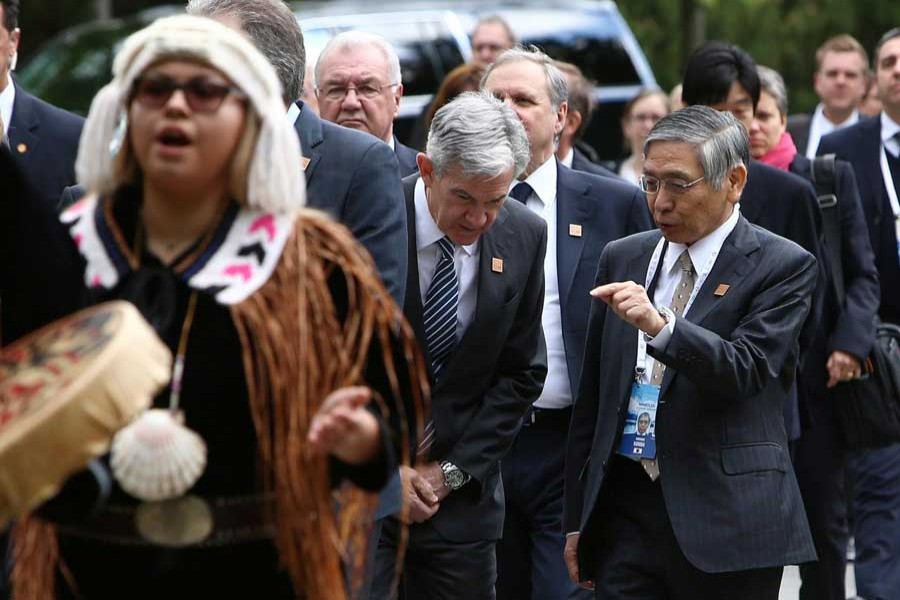Bank of Japan Governor Haruhiko Kuroda said on Saturday that inflation had recently been weak despite a steady economic expansion, signalling the bank’s readiness to maintain its massive stimulus programme.
Kuroda also voiced concern over the damage escalating trade frictions could inflict on global growth, but repeated his view that the world’s third-largest economy was on track for a moderate expansion.
“While there are some uncertainties on the global outlook, such as the impact of recent protectionist trade policies, they have yet to affect Japan’s economy,” Kuroda told reporters after a Group of Seven finance leaders’ gathering.
“Inflation, on the other hand, has recently shown some weaknesses,” Kuroda said, an acknowledgement that inflation remains slow in picking up despite the BOJ’s heavy money printing.
He blamed the weakness on temporary factors, such as past yen gains that slashed import costs, and stressed that the economy was sustaining momentum to meet the BOJ’s price goal.
It was the first time Kuroda had commented on recent inflation data, which underscored a dominant market view the BOJ’s price forecasts were too optimistic.
Japan’s core consumer prices rose 0.7 per cent in April from a year earlier, slowing for the second straight month and staying distant from the BOJ’s 2 per cent target.
Core consumer inflation for Tokyo, a leading indicator of nationwide trends, hit 0.5 per cent in May, a sign the economy was lacking momentum to drive up prices to the BOJ’s goal.
The three-day G7 meeting ended with little in the way of concrete solutions, although finance leaders of the closest US allies vented anger over the Trump administration’s metal import tariffs, Reuters reported.
At the same news conference, Japanese Finance Minister Taro Aso criticised the US tariffs, saying the move gave the G7 less clout in calling on China to open up markets and abide by World Trade Organization rules.
“The G7 ought to collectively tell China to follow global rules. By taking measures that violate G7 and World Trade Organization rules, the United States is actually benefiting China. That’s wrong,” Aso said.
“I’ve been to these meetings for a long time. But this is a very rare case where opposition against the United States was unanimous.”


